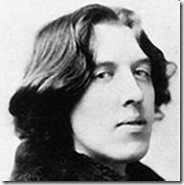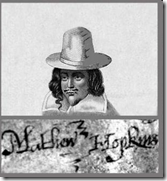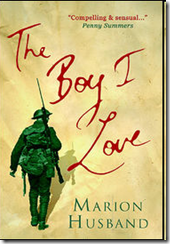Not for the first time, Alex Beecroft inspired me. She’s a member of the RNA (Romantic Novelists’ Association) and had gone to one of their meetings. And spoken to other authors. Real, live, face to face ones. In a mad moment I resolved to do the same, so I found out who was our local contact and fired off an e-mail asking a million questions. Well, three. Did they meet socially? Could newbies come along? Did I need to be a member to attend?
I had a delightfully welcoming reply – come along to our lunch meeting, no membership required, there’s a speaker, there’s a raffle! So, come the big day, I put on what Tamara Allen calls my ‘runs her own rock band’ outfit, ignore my 16 year old asking if Romantic Novelists’ meeting was a euphemism for ‘orgy’ and set off, with two concerns. Would I, even at 51, be the youngest in the room? And what would happen when I admitted I wrote gay romance?
I was made very welcome, everyone asking the same questions – do you write romance, are you are you published and are you from Havant. I never got to the bottom of the last one. Someone had come from Havant, I guess – in fact there were people from Shoreham and Swanage, all coming to Southampton to eat, drink and chat. And there were three men among the eighteen or so present.
Over lunch, I chatted to three other authors and the inevitable question arose – which romantic genre? Historical. Romantic suspense. And – I swallowed hard – gay. I waited to have my raffle ticket taken back and be sent from the room. Instead, they tried to put me at ease. “They’re all stories.” “I have a gay character in one of my books.” “Sarah Waters writes the genre.” It then became apparent that the lovely young Scottish bloke on my table was gay and the conversation turned to ‘who writes what’. He felt strongly that just because he was gay, it didn’t mean he had to write ‘gay’ stories and he didn’t get at me because I’m not gay and I did. I could have kissed him – I just hope he didn’t think I’d gravitated towards him because of some ping of the gaydar. (I didn’t. Charlie always just ends up near the youngest bloke in the room.)
The speaker was interesting, especially for me as she was writing a series of books. Publsihed by Orion, had the book of the month at Asda recently, but she said so many things we could identify with. “See this girl on the cover?” She looks nothing like my heroine.” Cue nods of understanding all around the room.
Will I go back for the next meeting in July? Yes. Will I join the RNA? I might. It won’t do much in terms of selling more books, but it wouldn’t hurt to bolster the group of m/m writers in their ranks. It takes authors from outside the UK, too. RNA Would I recommend going to a meeting if you had one nearby? Yes. Meeting other people with similar interests is always useful; you build up your knowledge, you make good contacts (I wouldn’t be published, wouldn’t have even wanted to be published, if I hadn’t ‘met’ lee Rowan.) I believe it’s also part of us saying “gay romance is as legitimnate a form of romance as any other and should be treated the same as comparable m/f stories”.
Maybe I was lucky. Maybe the reaction will be different next time if I sit with a different group of people (maybe they won’t e-mail me to confirm the venue!) But I showed my face and took another step on the coming out road. And no, dearest daughter, there wasn’t an orgy.

There’s a post over at Reading the Past which discusses the presence or absence of actual historical characters and events in historical fiction and whether the absence of them in books defines historical fiction or not.
I’m rather of the opinion that—going by the HNS definition—that it doesn’t make any difference whether there are any actual historical figures or notable events in the book or not. In fact—for every single historical book to have real life historical figures in it would actually be ludicrous, for it would mean if you were writing about ordinary people living their ordinary lives—say slaving away in the cane fields of America or grubbing a living in the sordid streets of the Potteries—to suddenly introduce a real historical person would be a huge jolt. I mean, look at even everyday lives today, how many people can say that they’ve met someone of note? (And I don’t mean a Big Brother Sleb, but someone that history will remember, such as Nelson Mandela or Mother Theresa?
Granted there is a real life person in Transgressions, the clever and charismatic Matthew Hopkins of Witchfinder fame. (Ignore the Vincent Price version puhleeze, that’s soft porn, just about) But that wasn’t exactly a conscious decision to include him,  Jonathan just happened to be in the right place at the right time. And as for historical events, it would have been a little difficult to have two young men in 1642 NOT aware of the impending war. That being said, there is a true story which involves a farmer being asked if his land can be used for one of the battles and he said “Who’s fighting who, then?” (Communication not being a key aspect of the 17th century, and obviously not everyone knew about the war!)
Jonathan just happened to be in the right place at the right time. And as for historical events, it would have been a little difficult to have two young men in 1642 NOT aware of the impending war. That being said, there is a true story which involves a farmer being asked if his land can be used for one of the battles and he said “Who’s fighting who, then?” (Communication not being a key aspect of the 17th century, and obviously not everyone knew about the war!)
But I don’t think it’s necessary at all to base your historical around real life events, or real life characters, and in fact its the stories that aren’t that I find most interesting. If anyone has read “The Boy I Love” by Marion Husband you’ll see that it’s just a story about people, living their lives. In the same gentle manner that many of A J Cronin’s books are written, or Cookson’s. 
To expect every book to be set around a historical event is also ludicrous. People always pick the same events too. I’d like someone to make a study of books written about the Titanic and add up how many people to date have sailed on the ill-fated ship. I would bet that her complement of passengers has increased by at least three-fold. I’m surprised she managed to get out of the harbour without sinking!
That being said – It always surprises me, with the enormous wealth of GLBT characters in history, that there aren’t more books about real characters.
So what do you think? Should historical novels all include famous people? Famous events? Or do you think that the little stories are just as important as the big ones?

Hello All,
Like a gazelle in a field of ravening cheetahs, I am sticking my head above the wall as that rarest of rare things on the Macaronis, an unpublished author. Do not worry, Alex Beecroft has given permission for the tasty morsel to wander into your playing field.
See, I am about 5 days away from finishing my first draft of my first ever Historical Novel. Well, my first ever novel. And not being an historian, nor especially well versed in history, I thought it could be interesting for people to see how someone like me goes about writing a first draft, and how they envision the writing process.
The story I’m writing, with a working title of De Ruina Mundi (I was being clever and allegorical. Next time it will be called “Book about XXXXX” Much less hassle.) is set in late 15th Century Florence, and is a commentary about church vs. secularism, and how the two were in direct opposition at the time, much as they are today (up to and including problem teens lurking on corners! I’m not joking!). It is the story of a sculptor, a novice monk, and a young aristocrat and features Savonarola and Cosimo de Medici as what I call ‘mid level characters’

Cosimo de Medici

Girolamo Savonarola
Now, when I started writing this, I had just got canned from the “I Do!” anthology for trying to tell a long story in less than 10,000 words.
Now, when I first started writing this, I had just got canned from the “I Do!” anthology for trying to tell a long story in less than 10,000 words.
Frankly, looking at it now, it was an unmitigated disaster., and would not have fit the anthology at all. So, I started De Ruina Mundi (DRM) pretty much from square one. I had three things on my side though, I’ve studied architectural history, I’m a highly theologically educated Roman Catholic, and I can read Italian.
Now, right at the beginning of DRM, I had to make a choice about how I was going to write it. I know that this has been brought up on Speak Its Name, actually in reference to DRM itself, so let me explain my
reasoning. As I read Italian, it means that I can read 15th Century Italian very easily, and not much has changed since then. Furthermore, Italian is written and spoken with a certain cadence and inflection that I can easily mimic in English. The thought of writing it in what I call “old-speake” seemed unnecessarily complex, and extremely anachronistic. Therefore, I decided to write it using Italian expressions and cadence, but in modern English.
So okay, now, I know that I want to write something about sculpture and art, and humanism versus the church, because I’ve always been very interested in the politics of art and architecture. But how best to showcase this? Well, how about an apprentice sculptor named Giuseppe Martedi (Johnny Tuesday! Hee!) and his friend Tomasino Rossi. They have grown up together, been friends since childhood, but now their
church, because I’ve always been very interested in the politics of art and architecture. But how best to showcase this? Well, how about an apprentice sculptor named Giuseppe Martedi (Johnny Tuesday! Hee!) and his friend Tomasino Rossi. They have grown up together, been friends since childhood, but now their
varying vocations are tearing them apart. They’ve always had a bit of a thing for the other, though Giuseppe is most definitely bisexual, while Tomasino pretty much only likes men. This book was supposed to be their story, a nice, 60k-ish novella about coming of age under two such defined institutions. It is not.
See, I had attempted to write the “I Do!” story with an outline, and got bored, so I figured I’d not try an outline for this one. And suddenly we had a the master-sculptor called Battista, his patron, Signor Agostino (vassal of the Medici), and his son Marco, and Signor Agostino’s brother, Fra. Benedetto, the novice master, and one of the few monks who were kept on at San Marco when Savonarola came to clear it up. And like Fleury in Standish by Erastes, the bloody buggers refused to go away! Okay, so reassess. Tie in Marco and Battista together, put some tension in between Benedetto, Signor Agostino, and Marco. Have Marco have a few horrible occurrences in his past. Suddenly, I’m 20k in, and completely confused as to where this was going.
I better interject here, that I write in a very amusing fashion for those reading along on etherpad. I do not stop writing to research. At all. So my text goes along the lines of…
“Marco and Tomasino stood at the end of the (road??? – what precisely was a road like! ) waiting for the (XXXX transport device). (Insert description of road here.) Marco turned to Tomasino and said (Foreshadow this!)… ”
Which means that I kind of have a really really rough draft as I’m writing. (Note – that is a made-up example – there tend to be fewer comments per sentence). I figure that it should all be okay when I’m editing, but if you guys like this post, I’ll come back and tell you about how that all went.
 Okay, sit back and reassess again. Luckily for me, my characters come with built in flaws – as a monk, Tomasino is the epitome of male Renaissance beauty. Which today would be called plump, rounded, fat.
Okay, sit back and reassess again. Luckily for me, my characters come with built in flaws – as a monk, Tomasino is the epitome of male Renaissance beauty. Which today would be called plump, rounded, fat.
Giuseppe is a little shit that is really up his own arse, and teases Tomasino about this continually. Ah, defensive men are amusing. And Marco is very impulsive, and very very “I look after me and mine. You are either for me or against me.” So, how to exploit those flaws?
Let’s ramp up the conflict, and introduce a nice Jesuit priest because the Dominicans were essentially founded to control the Jesuits. And boy do they hate each other. Move on from there…
At about 50k, I had a random panic. I thought I knew where the book was going to end, but how to get there and not blather on and on. (Rather like this post). I wrote an outline. It was a good outline.
Three days later I get smacked upside the head with a new ending.
Cue panic. Cue irritation. Cue new outline. Great. Ending sorted. HAH! No way. Seven chapters in, one of the characters refuses to behave himself (and it took Vashtan to remind me why). Cue soul searching. New ending appears. New ending is trite. More soul searching. New way to do that ending. Am I taking the easy way out? Am I playing to stereotype? Is the story consistent?
And so it goes. Endings have come and endings have gone. I am now about 27k away from the final word (taking a long weekend, so I can finish it off) and I am still a bit unsure of exactly how it is going to end. I have actually lost the time-line, and so my first edit is going to be retimelining the bloody thing.
There is much less sex in it than I originally thought there would be, and a lot less romance. Apparently my people never eat. Though they frequently have baths. This has ended up being a story of political intrigue, of people living and dying in one of the most volatile periods in European Catholic history. And I hope an entertaining read.

San Marco, Florence
I know that I am going to have one hell of a job on my hands editing this. But it has been the most amazing four months of my life. I never thought I could do it. I have been supported by some fantastic people,new friends and old. It has been a fantastic journey, and now the finish line is in sight.
So if you’re thinking of thinking of writing something. Go ahead. Take the plunge. It is worth it.
So thank you Alex, and Erastes for letting me post this here. Will keep you updated.






 Okay, sit back and reassess again. Luckily for me, my characters come with built in flaws – as a monk, Tomasino is the epitome of male Renaissance beauty. Which today would be called plump, rounded, fat.
Okay, sit back and reassess again. Luckily for me, my characters come with built in flaws – as a monk, Tomasino is the epitome of male Renaissance beauty. Which today would be called plump, rounded, fat.
